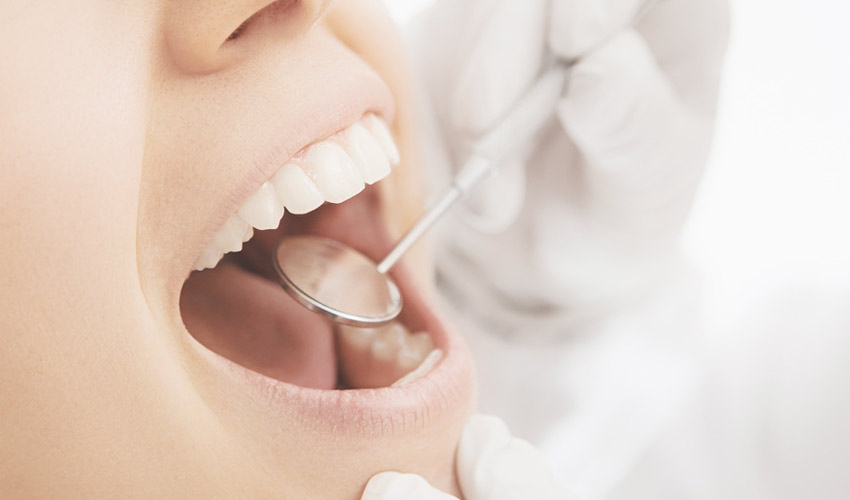Microscope
The phase contrast microscope is used at all times during your follow-up visits. It is used mainly in a preventive way, because we can detect certain oral diseases. At each appointment, we take a sample of dental plaque and analyze the biofilm with the microscope.
Our staff is trained in microbiology to better serve you.

Did you know that the bacteria present had consequences on your health
Here are the microbes that we can see using the microscope and their consequences
- Candidas: responsible for root cavities, and burning gums, it is a fungus that appears after taking certain medications or when there is an imbalance in your body’s PH.
- Mutans streptococci: bacteria causing tooth decay
- Vibrios, spirochetes: bacteria responsible for gingivitis
- Cocci and filaments: present during optimal gingival health
- White blood cells: cells that help defend the body
- Helicobacteria pylori: bacteria present in stomach ulcer
- Actinomyceses: tartar-causing bacteria
- Trichomonas: parasites responsible for gum disease or Sexually Transmitted Infection (STI)
- Entamoeba gingivalis (amoebas): parasites contributing to periodontal disease
Come see what’s hiding in your biofilm!!
Did you know that the bacteria present in your mouth can contribute to several health problems, including your heart health??
Bacteria in our mouths can pass into the bloodstream and contribute to heart problems. When the health of the gums and teeth is not optimal, the risks of suffering from heart problems increase. Bacteria in the mouth are not only responsible for gingivitis but also for inflammation of the arteries and even the formation of blood clots. The immune system immediately identifies the bacteria that enter the bloodstream, which produces local inflammation of the arteries. This inflammation can be the cause of the development of clots in the arteries which can cause a stroke (cerebrovascular accident), a heart attack or a ruptured aneurysm.
Your heart health depends on taking good care of your teeth and gums!
It is therefore very important to inform us of any cardiovascular problems, so that we can properly advise you on dental care in order to prevent any complications.

Cardiovascular history
If you have a cardiovascular history, it is very important to inform the professional who follows you. Whether it be:
- artificial valves
- a history of endocarditis
- congenital heart defects
- valves damaged by another disease
- a heart murmur or
- hypertrophic heart disease (genetic disease),
Please notify us of your conditions, as well as any doctor-prescribed medications you are taking.

The heart and dental and gingival bacterial infection
An infection in a tooth or gum, which has never been treated or taken care of, can also have serious and even fatal consequences. Bacteria present during gingivitis, periodontitis or tooth infection migrate into the bloodstream. It is possible that they continue their way to the inner layer of the heart, the endocardium, and create an inflammation of it, which can cause endocarditis. This disease is still rare, but serious, it is treated with antibiotics administered in the hospital. In some cases, an operation is necessary because the valves of the heart can be destroyed by bacteria.
Regular visits to your dentist with the dental hygienist can prevent future heart problems since gum and tooth evaluation is part of their routine.

Diabetes and oral bacteria
There are two types of diabetes, type 1, insulin-dependent, in which the immune system destroys the insulin produced by the pancreas, so the body fails to destroy glucose, which results in too high blood sugar in the blood, hyperglycemia. This type of diabetes is more often diagnosed in young people, adolescents or young adults, they represent only 10% of diabetics.
Type 2 is where patients develop resistance to the insulin produced by the body. It is the most common type of diabetes and is diagnosed more often in people aged 40 and over, unfortunately it appears in younger and younger people.
Both types of diabetics need close follow-up with their doctor, because several consequences/complications are possible if the lifestyle is deficient. The disease can lead to several oral disorders, such as cavities, bad breath as well as periodontal disease.
Danger of periodontal disease
Since diabetics have a compromised immune system, the risk of developing periodontal disease increases drastically, they are 3 times more at risk than a non-diabetic person. In addition, periodontal disease makes it more difficult to stabilize blood glucose levels, which increases the risk of complications from the disease. In people whose diabetes is poorly controlled, bone resorption (loss of supporting bone) can worsen until teeth are lost more quickly.
Did you know that :
- only 1/3 of diabetics have an annual dental consultation
- 1 in 2 diabetic patients have periodontal disease
- diabetics are 3 times more likely to have periodontal disease
- only 50% of diabetics recognize the importance of dental care.
For what? Perhaps because of the much higher burden of medical expenses among diabetics than for the average person, or because dental services are not covered by universal insurance.
Why are diabetics more likely to suffer from periodontitis?

Signs of poorly controlled diabetes
- Burning mouth syndrome
- Change in taste
- Yeast infection (thrush, candidas, detectable under a microscope)
- Marked increase in cavities
Causes
- Decreased saliva
- Increased glucose in saliva when blood sugar is poorly controlled
- Loss of gum collagen
- Poor circulation of blood in the gums
Effects
- Restricts self-cleaning of the mouth, which increases the development of biofilm
- Promotes the growth of bacteria in the mouth
- May accelerate the destruction of tooth-supporting tissue
- Decreases nutrient intake and impairs healing

See your dental hygienist regularly, an important prevention for your health
A visit every four to six months with your dental hygienist helps to eliminate any buildup of tartar and biofilm and to screen for the presence of cavities, periodontal disease or other conditions. The dental hygienist records the state of health, the medications taken, the blood sugar level and the symptoms in the professional file, in order to offer more personalized advice, treatment and follow-up.



